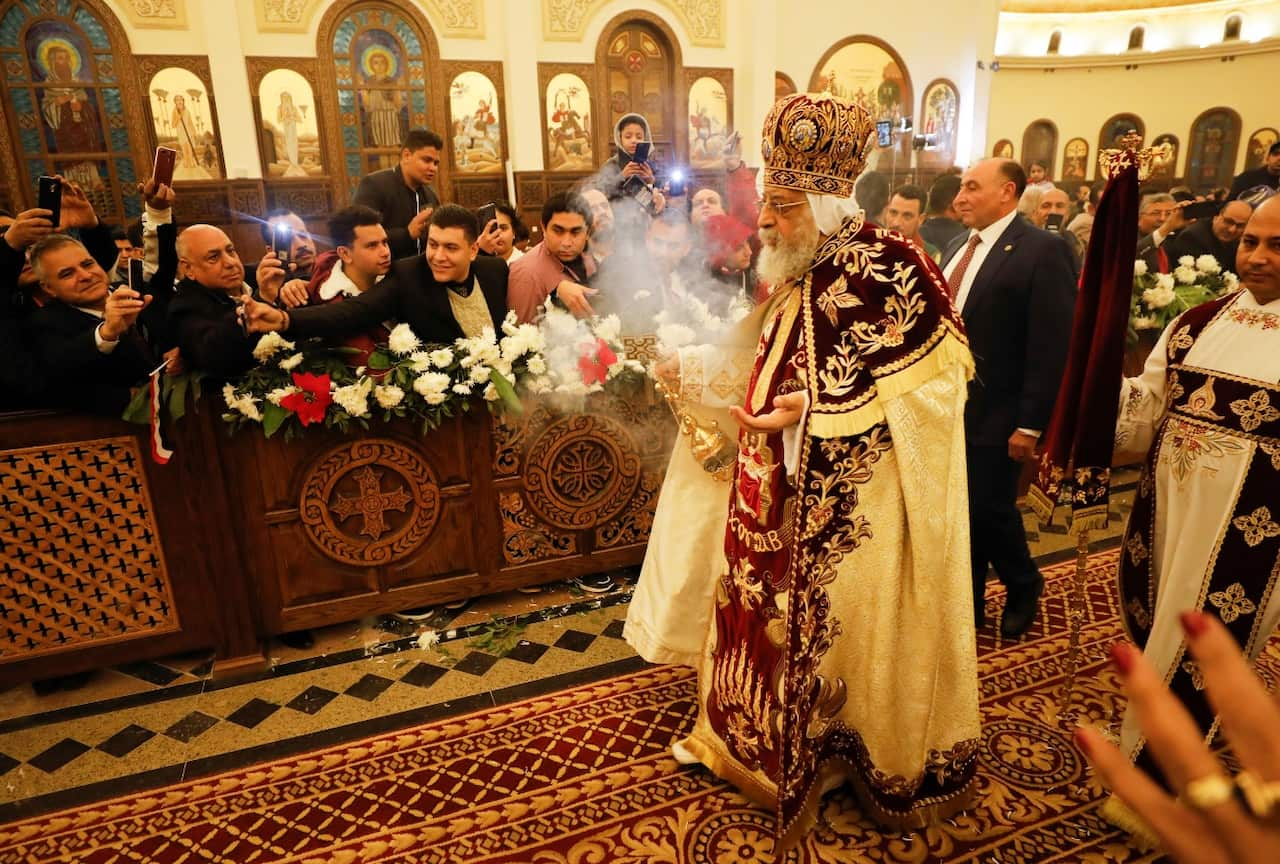January 7 marks the birthday of Jesus Christ for members of many Orthodox Christian faiths; including Copts, Russians, Serbs, Macedonians, Ukrainians, Bulgarians and Romanians.
While an exact estimate is difficult, census data indicates that there are hundreds of thousands of Australians who belong to faiths that mark Christmas on January 7.
Why January 7?
The exact date of Jesus' birth has never been established in any secular texts.
With a lack of historical evidence, the date has been selected through historical events mentioned in the gospels of Luke and Matthew and the ministry of Jesus.
Christmas on January 7 works to the Julian calendar which pre-dates the commonly-used Gregorian calendar, which observes Christmas Day on December 25.
The Julian calendar runs 13 days behind the Gregorian calendar.
For most Orthodox Christians, Christmas marks the beginning of celebrations following 40 days of fasting.
At midnight on Monday, Christmas masses were held at churches across the world and in Australia.

Pope Tawadros II of Alexandria leads Egypt's Coptic Christmas eve Mass in Cairo, Egypt, 06 January 2020. Source: AAP
Christmas traditions
Keeping traditions alive is at the heart of the Christmas celebrations for Egyptian-Australian Amal Fam, who is of the Coptic Orthodox faith.
Amal recalls Christmas in Egypt as an occasion where people bake pastries and cakes, and prepare various dishes including stuffed zucchinis, fattah, stuffed grape leaves, duck and pigeon.
She says the goodwill extends to the following day when people visit neighbours to offer cake.
However, she says Christmas celebrations in Australia are different.
“During Christmas, we clean the house, prepare food, then we head to the Church and after that, we gather with family and friends in a restaurant to spend quality time.
“The difference in Australia is the neighbour element, where everyone is living in his or her own house.”
Amal’s husband Khalil asserts that Christmas is a time to spread joy, love and forgiveness among people.
Coptic community member Mouinur Bashay recalls memories of a time when he was a child in Egypt, where he helped his mother bake biscuits and cakes.
“My mum, who is in heaven now, used to insist on baking cakes and biscuits with us, and the most beautiful thing she used to let us help her, despite the mess we used to create around her.
“My problem is similar to the problem of other migrants, not all my family members are here, which changes the spirit of the occasion from a family event to a social one.”
Comparing Christmas between his previous and current homes, Mouinur says: “Christmas in Egypt has more impact on families, and individuals, I feel there's more communication between people, while in Australia it is more commercial.”
“I lost some of the Christmas spirit. Some of those kids who were born here, they might not share the same appreciation for the event,” he said.
Father Vladislav Šipovac from the St Sava Serbian Orthodox Church in Melbourne believes it is vital for Australian Serbs to strike a balance during Christmas, of culture and faith, between the homeland and their new home.
“As an ethnic kid, it was always ‘we do everything the right way, mainstream is always wrong’, that’s not right. We should be proud of our customs, and share them with our neighbours, but also look at things like Christmas Carols or Kris Kringle at school or kinder or local Christmas concerts. That is something we need to embrace and show we are part of the community. We, of course, hold onto our traditions that are centuries old but share that with our neighbours. Let them see what we have brought over to this new land we now call home,” he says.
“We shouldn’t become religious, or cultural or social fanatics. That is one extreme. The other side is assimilation, where you just give up anything that ties you to ancestry and faith, that isn’t an option either."
Christmas for Macedonians
For the Macedonian Orthodox people, celebrating Christmas involves lots of traditions.
Traditionally, in Macedonia, the family gathers for a dinner on Badnik, or Christmas Eve.
Rich meals are prepared with only vegetarian ingredients: chickpeas, sarma (sour cabbage rolls with rice) beans, herbs, dry peppers, potatoes, nuts, chestnuts and fruits.
Special Christmas bread is prepared with a coin inside, which is divided among the members of the family, as well as a piece reserved for God.
The person who finds the coin it is believed to receive good luck for the next year.
In some places, the food stays on the table after dinner, which is related to the belief that Santa will come that night for a meal, or, as some believe, the spirits of the dead.
Additional reporting: Sofija Petrovic, Radica Bojkovska


